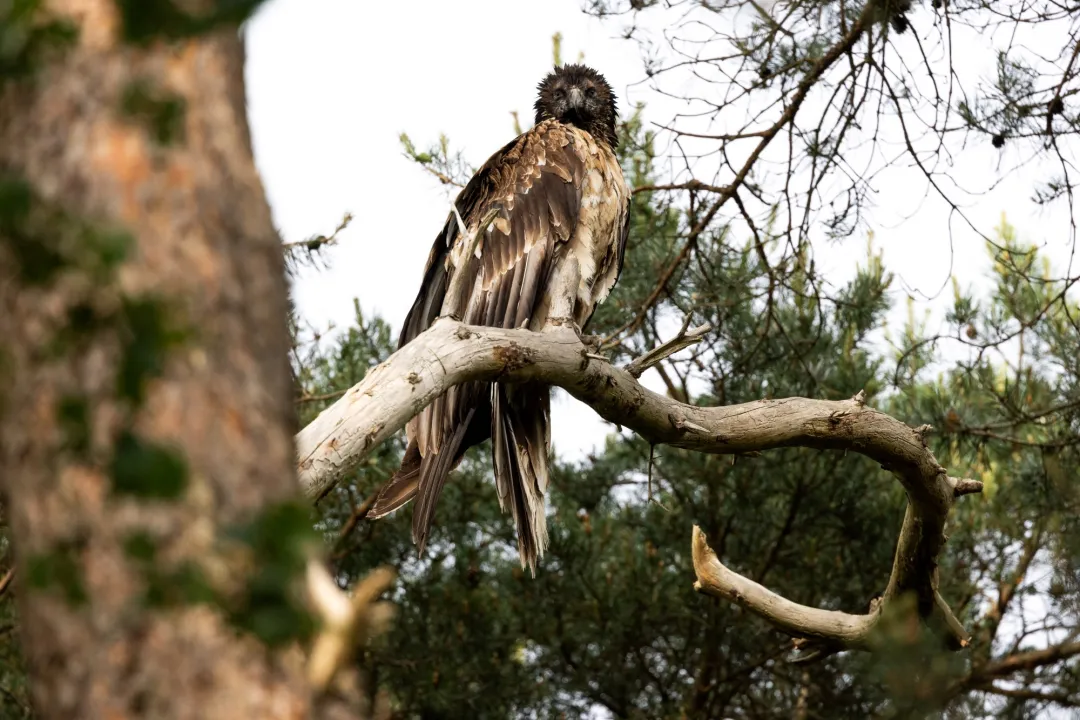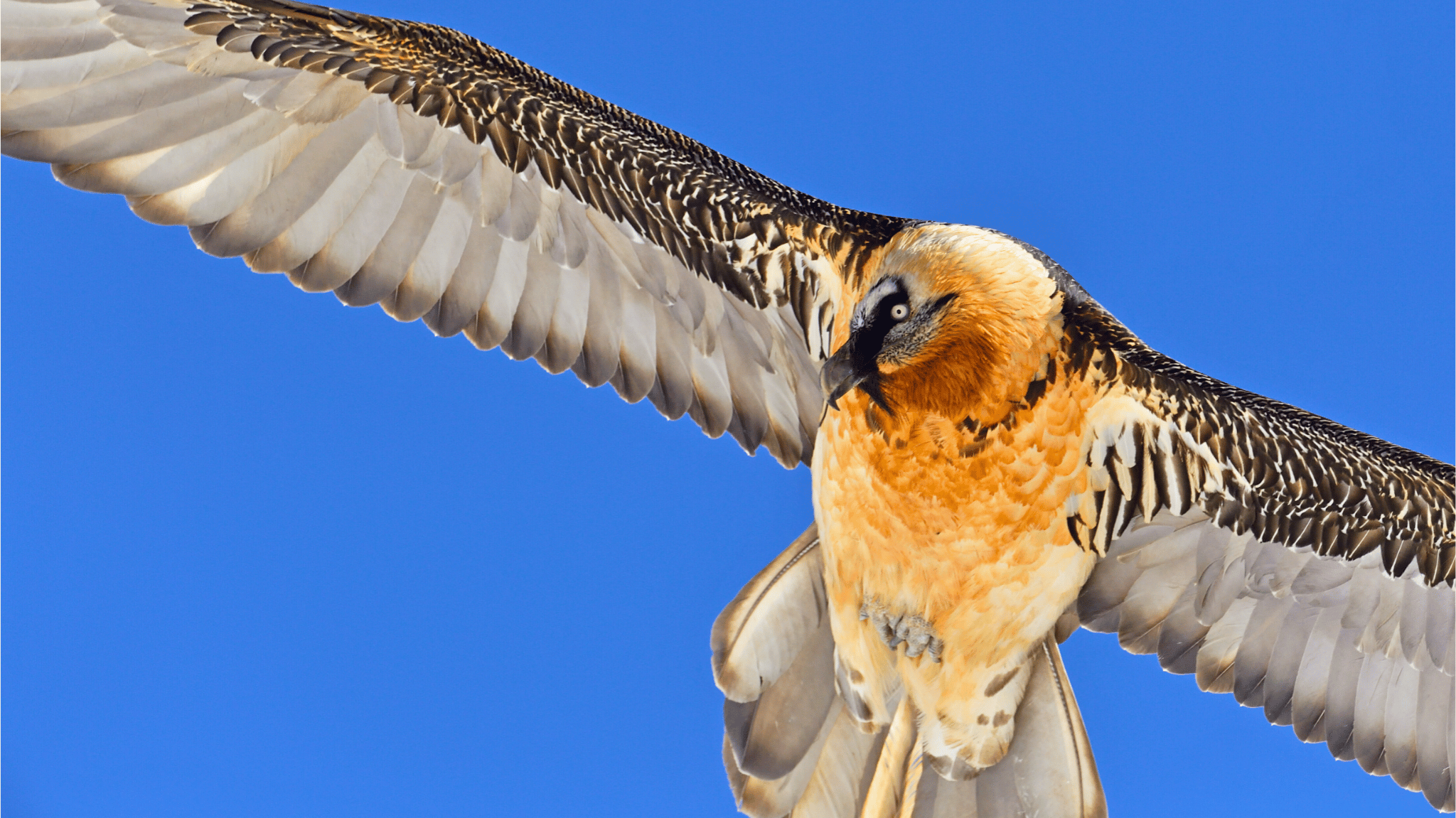
The Bearded Vulture reintroduction programme is one of the most celebrated and successful wildlife comeback stories in Europe! To be able to bring back the species to their former ranges in different locations across Europe, the programme relies on captive breeding. At the base of this spectacular results are a dedicated network of organisations, staff, and volunteers, working in over 40 zoos and specialised breeding centres, working non stop with the 178 birds in captive stock to maximise captive breeding of Bearded Vultures for release in reintroduction projects. As the coordinator of the Bearded Vulture Captive Breeding Network (EEP), the VCF continuously strives to improve the welfare of this species and increase its survival rate in captivity, and their diet plays a vital role in this.
Diet of Bearded Vultures

Bearded Vultures feed primarily on bones, but when they are nestlings, especially during their first four weeks, they need to eat soft tissue exclusively. Also, when they are about 35 days old, and up to becoming fledglings, young birds need to eat double the quantity of food than fully-grown birds! Apart from the diet, feeding routines and the way food is offered can also influence the welfare of the birds. As poor feeding practices are considered the second cause of death in captive Bearded Vultures, we have produced the Guidelines for feeding Bearded Vultures in captivity, which were previously shared in English and French and are now available in Bulgarian and Russian!
Guidelines for feeding Bearded Vultures in captivity
These guidelines provide essential information that can hopefully improve the welfare of birds in captivity, giving them a longer life span and higher breeding success. In this document, the food requirements are described in detail, and prescriptions for food quality and quantity are detailed. At the moment, there is one centre in Bulgaria and three Russian-speaking zoos within the network.
A big thank you to our volunteers who translated the documents! Andriana Dicheva from the Green Balkans for translating the documents in Bulgarian and Natalia Guseva, Translator from Leningradsky Zoo for translating the document in Russian.
Download the Guidelines for feeding Bearded Vultures in captivity in Bulgarian
Guidelines feeding Bearded Vultures in c
Adobe Acrobat Document 22.0 MB
Download the Guidelines for feeding Bearded Vultures in captivity in Russian
Guidelines feeding Bearded Vultures in c
Adobe Acrobat Document 20.8 MB
Did you know that the 2019/20 Bearded Vulture breeding season is underway, with some chicks already hatching in captivity? Follow the latest news on Facebook and Twitter with #BeardedVultureBreedingSeason or sign up to our newsletter to never miss any vulture news!







